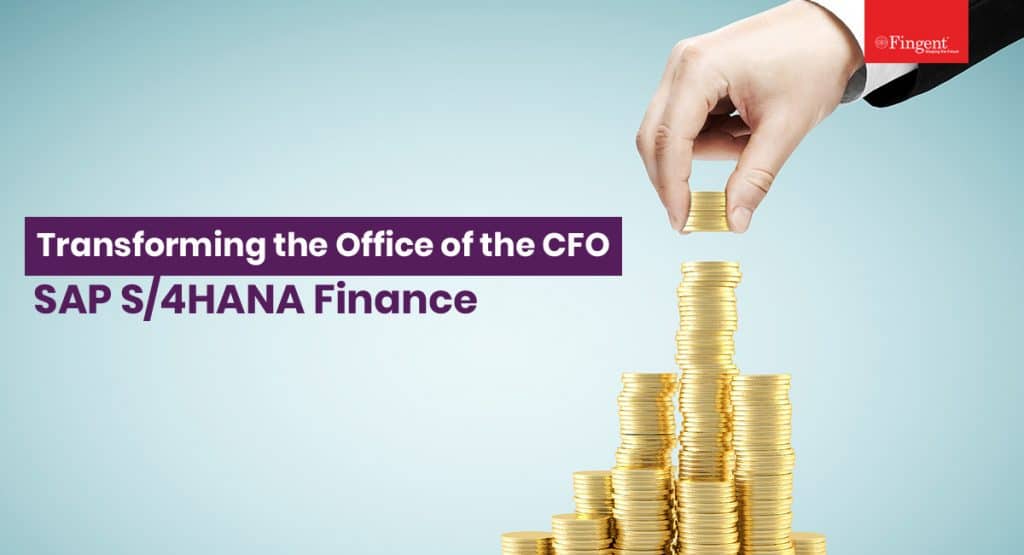7 Ways Business Intelligence In Finance Can Empower CFOs Today
Warning: in_array() expects parameter 2 to be array, null given in /home/www/fingenttest/public/wp-content/themes/fingent/template-parts/content.php on line 37
Warning: in_array() expects parameter 2 to be array, null given in /home/www/fingenttest/public/wp-content/themes/fingent/template-parts/content.php on line 81
Business Intelligence in Finance becomes the most trusted aide of the modern CFO. Here’s how BI helps finance teams to leverage insights and drive the business forward.
Business Intelligence In Finance: A CFO’s Most Reliable Tool
In 2020 alone, 64.2ZB of data was created or replicated by many industries. However, 73% of the enterprise data is left unused for business analytics and intelligence. Several studies prove that business intelligence in finance enables enterprises to reap ROI and profitability and boost customer retention. In one of its recent reports, Tech Jury reveals that effective utilization of big data allowed Netflix to save $1 billion per year on customer retention.
Is Business Intelligence worth putting time into? If you’re a CFO, then it might be a good idea to investigate this further. After all, time is worth money, and BI does come with costs.
In our experience, we know that it is worth it. A CFO can use BI to harvest business-critical insights and drive value through process improvement. This blog presents some key facts that show why Business Intelligence in finance is crucial for CFOs.
Read more: How Odoo ERP Helps Leverage Business Intelligence and Data Analytics
What Is Business Intelligence?
Business Intelligence is a tool that is often misunderstood and usually underutilized by finance organizations. Business Intelligence in banking uses analytics software to create interactive data visualization. BI covers a broader range of functions that include querying, data mining, data preparation, and so on.
Data thus collected is an invaluable asset that allows finance organizations to understand themselves better and make informed decisions.
Read more: Business Intelligence 101
Why Must CFOs Understand The Significance Of BI In Finance?
As financial organizations recover from the devastating blow of COVID-19, CFOs must look beyond managing costs to discovering new opportunities to plan business. CFOs can pursue these opportunities with the help of BI solutions.
Financial services are awash by terabytes of data pouring in each day. To manage a financial organization successfully, CFOs must understand that data quickly and in a targeted manner. Business Intelligence tools can draw data from internal and external sources for centralized and comprehensive data management and analysis.
A Business Intelligence (BI) tool will help CFOs infer the potential market and business opportunities, identify value drivers for growth opportunities, and then track KPIs against those. A well-implemented BI tool can assist CFOs in handling real-time data quickly and precisely. Business intelligence in finance enables CFOs to correlate between investments and profitability across multiple dimensions of your financial organization.
Such analysis will help CFOs further strategize on valuation or growth optimization. As a result of that solid proof, the finance organization can improve overall services and create future go-to-market strategies.
By focusing on strategic value through BI, CFOs can enable their organization to become resilient and agile. These traits are crucial now than ever before, given the need to mitigate risk while navigating potent disruptors like a global pandemic.
Read more: Business Intelligence in SAP: How It Helps You Become a Data-driven Organization
How BI Can Enhance The Role Of The CFO
Business Intelligence combines proactive data management with process automation and business analytics. By using this combination, CFOs can make several critical improvements within their organization, such as:
1. Clear and Complete Data
The CFO needs to know what is happening in the company to help him develop and implement refinements. BI tools can help CFO and his team to:
- Integrate and standardize existing software environment
- Eliminate human error
- Automate key processes that boost speed and accuracy
- Eliminate data silos
- Perform advanced data analysis tasks
The BI tools use ML to bring data together in a secure, well-managed data warehouse. These tools will clarify and organize your information, assisting CFOs to make the best decision possible. BI can benefit:
- Real-time working capital analysis and management
- Advanced budgeting and forecasting
- Preparation and distribution of critical financial statements
2. Data Visualization
CFOs need to make crucial decisions in real-time. However, looking through pie charts or reams of printouts can be time-consuming and delay the process of decision-making. Finance leaders can tackle this challenge easily with the help of business intelligence tools.
Read more: How Fingent Helps CFOs Gain New Insights and Reliably Enable Key Decisions
Business Intelligence uses data analytics to make insights available faster and with greater clarity. Hence, it can generate concise visualizations that bring additional value to the process. Such data visualizations help CFOs examine the connection of seemingly disparate data sets.
The CFO can use visualization to develop new products that will attract a key demographic and increase their average spend. Also, it will help them identify saving opportunities in the supply chain. BI uses advanced technologies to create heat maps, interactive augmented reality applications, and data dashboards. These will assist in tracking business performance and strategizing effectively to reduce the risk or increase profitability.
Read more: How Data Warehousing Adds Value To Data Visualization & Reporting
3. Risk Mitigation
The banking and finance sector faces unprecedented business disruptors creating uncertainty in business growth. With the help of BI tools, CFOs and their teams can organize all their data for real-time access and analysis.
Finance professionals can use these metrics to monitor and evaluate internal processes and detect and reduce fraudulent activities to minimize risk. This provides context and clarity and helps companies identify invoice fraud and improve internal compliance.
Business intelligence tools can be integrated with analytics capabilities to measure, identify, track, and analyze operations.
Read more: Transforming The CFO into a Business Value Creator and Role Model
4. Operation and Performance Management
Synchronizing the organization to build resilient operations has never been easy. The efficiency of management alone will not suffice. A well-known business benefit of BI tools is performance management capabilities. This will help you identify your business performance at every level. You can conduct a performance and operational health check regularly.
5. Identify Potential Weaknesses in Business
Growth will suffer if a business’s weakness goes undetected. A CFO and their team can identify incomplete or inconsistent data with the help of accurate and comprehensive data. This will reveal potential flaws in specific controls and processes.
6. Improved Customer Service and Retention
Finance organizations must understand why their customers might be inclined to move to the competition to stay ahead of the competition. BI tools reveal customer requirements because they identify the customers spending patterns. This data helps organizations to improvise and provide services that procure customer loyalty.
7. Predict Future Trends
A smart CFO will always have their gaze fixed on the future. Therefore, the CFO will want to explore and make predictions about future trends and prepare their finance organization with the future in mind. Instead of relying on old methods, CFOs can use BI tools to make predictions for the future of their organization and deliver clear plans that find sure success.
Read more: Reimagine Your Business Intelligence With Dynamic Visual Storytelling Using SAP Analytics Cloud
Make Better, Intelligent, Informed Decisions – Starting Now!
Equipped with valuable data, a CFO can make intelligent, informed decisions and help their financial organization stay ahead of the curve. They can also ensure that their organization remains resilient under disruptive circumstances. Thus, they can enable their business to maintain momentum with new developments, detect market changes, and measure the effect of changes on customer requirements. If you are a CFO, you need to get on board with the best way to maximize your Business Intelligence. Experts at Fingent can help you understand how. So give us a call, and let’s get talking.
Stay up to date on what's new

Recommended Posts

25 Jul 2023 B2B
A Quick Guide To A Successful Digital Transformation Journey!
Today, technology seamlessly weaves its way into every aspect of our daily lives. That's precisely what digital transformation is all about - a process that enables businesses to harness the……

24 Mar 2023 Financial Services B2B
Reimagining the Financial Industry for a Digitized Society
Digital technologies are evolving at an unprecedented rate. Major innovations, such as artificial intelligence tools, machine learning software, cloud computing resources, and big data, have already reshaped the landscape of……

03 Dec 2021 Financial Services
Is AI The Future Of Banking?
The pandemic is now the biggest and most critical challenge of traditional banking. Some of these challenges are revenue pressure, data security, customer service management, data collection and analysis, risk……

29 Jun 2021
6 Reasons Why The FinTech Industry Should Embrace Legacy Cloud Migration
How does legacy cloud migration ensure business continuity in FinTech? Explore in this article. Did everyone have Business Continuity Plans in place and protocols to follow during the pandemic? Yes,……
Featured Blogs
Stay up to date on
what's new















